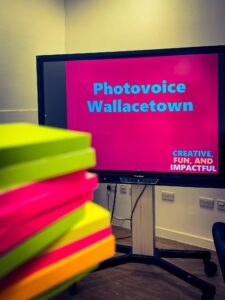 Location: Online (Zoom: https://ed-ac-uk.zoom.us/j/81600324013)
Location: Online (Zoom: https://ed-ac-uk.zoom.us/j/81600324013)
Time: 10-11am Tuesday 20th February 2024
Abstract: Everyday members of the police are in our communities witnessing and having to respond to the consequences of health inequalities. Initiatives like the Scottish Violence Reduction Unit (SVRU) and Edinburgh Futures Institute recognise the potential for collaboration between public health and policing. The Scottish Institute for Policing Research (SIPR) is a strategic collaboration between 15 of Scotland’s universities (including the University of Edinburgh), Police Scotland and the Scottish Police Authority. They offer a range of opportunities for conducting relevant, applicable research to help the police meet the challenges of the 21st century and for achieving international excellence for policing research in Scotland.
The updated purpose of policing in Scotland set out in the Police & Fire Reform Act 2012 is: ‘to improve the safety and wellbeing of persons, localities and communities in Scotland.’ In order to meet this aim, the objective is that: ‘the public, communities and partners are engaged, involved and have confidence in policing.’ Research into confidence in policing conducted in 2020-21 identified a number of communities where engagement with the police was low. These were called ‘seldom heard’ communities, and in 2021 in collaboration with SIPR a call went out for related research projects. One of the funded projects, in collaboration with the SVRU, explored the potential for the police using photovoice approaches. Photovoice is a participatory research method recognised for its utility in communities and to influence policy makers.
This seminar with provide an overview of SIPR as well as the photovoice project, providing an opportunity to discuss the strengths, limitations, ethics and practicalities of this research method.
Speakers:
- Dr Andrew James Williams is a Senior Lecturer in the School of Health in Social Sciences and one of the SCPHRP Co-Directors. His research interests lie in the social and cultural determinants of health (the fifth wave of public health), especially among children and young people, particularly through the application and exploration of theories such as complexity theory and salutogenesis. His research is often collaborative and transdisciplinary, including engaged research (such as his work with the TR14ers) and co-production approaches. Andrew employs both quantitative and participatory methods to the evaluation and study of a range of public health interventions such as 20mph speed limits, central heating systems and school-based intervention.
- Monica Craig is the Knowledge Exchange and Business Manager for the Scottish Institute for Policing Research (SIPR). She has work across issues of crime and justice for over 18 years, across several sectors as well as internationally.
In addition to her undergraduate study in Psychology, Monica is a graduate of the University of Edinburgh where she received a Masters in Criminology and Criminal Justice.
Monica has worked across a variety of sectors including private research consultancy, NGOs, and the Scottish Government’s Justice Analytical Services. She spent eight years in Australia where she managed the Research Office for the College of Arts and Social Sciences at the Australian National University, she also worked with the Australian Commonwealth Department of Social Services and with the Australian Institute of Criminology where she managed the National Deaths in Custody and National Police Custody programs.
Recording: https://ed-ac-uk.zoom.us/rec/share/3QmaAcMHfVb52cSwo1I55c5LWuWqDN1ImOWomLeFuluT4Glj8M0hz7k7fslya48f.o-4-dmLEpxjPuJE4





What are “seldom heard” communities, and why were they identified in the research mentioned in the abstract?
Thank you for the question, there is a lot of rightly contested language here. Sometimes I equate ‘seldom heard’ with ‘easily ignored’, but the idea is that these are comunities whose experiences and opinions are either not being heard or ar ebeing overlooked. In the case of this specific project, Police Scotland had undertaken work on public confidence in policing. Within that work they identified that the following groups reported lower confidence in policing: people living in neighbourhoods categorised as deprived (SIMD 1 & 2), disabled people, children and young people (10-29 years old), LGBTQi+, BAME and Trans. These terms have been taken directly from the research undertaken by Police Scotland, the photovoice project focused on children and young people, and we recognised that there is intersectionality. Thank you, Andrew